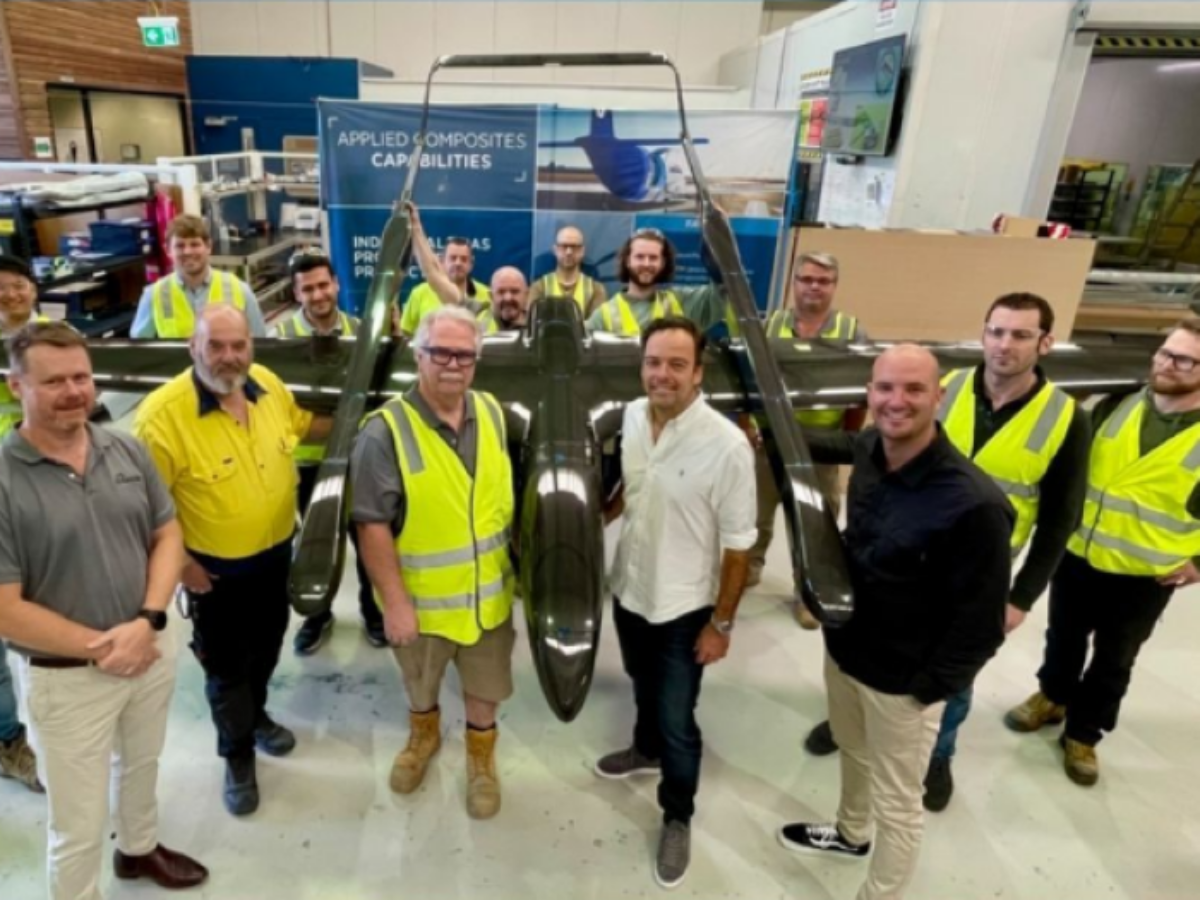Manufacturing news briefs — stories you might have missed

Orthocell solidifies partnership with UWA
Tissue regeneration technology developer Orthocell has executed an agreement with the University of Western Australia to exchange UWA's entitlement to royalties for equity in Orthocell. The company will issue UWA 1.71 million shares in the company at a deemed price of 35 cents, placing the university among the top 20 shareholders. The swap, which recognises the long-term partnership between the company and university, will see UWA own 1.19 percent of Orthocell.
Quickstep hands over first UAS to Carbonix
Quickstep Group’s unmanned aerial system (UAS) manufacturing team in Geelong reached a milestone with the handover of the first Ottano airframe (pictured) to long distance infrastructure inspection company Carbonix. Carbonix and Quickstep are utilising their manufacturing partnership to deliver increased capabilities for both organisations, according to a statement. Ottano’s VTOL capability and extended flight time enable it to be deployed from small unprepared areas for applications from energy and infrastructure to agriculture and conservation where surveillance and reconnaissance are required. Quickstep took to social media and said: “This accomplishment not only reflects the team's dedication and technical expertise but also marks a transformative shift in UAS capabilities.”
Neurizer to raise new capital
Insitu coal gasification company Neurizer is to raise $3.2 million through a Renounceable Rights Issue to shareholders. The company, which plans a urea fertiliser plant based on the former Leigh Creek coalfield in South Australia. Funds raised under the offer will be used for working capital purposes whilst the company completes the strategic partner and associated fundraising process required to achieve Financial Investment Decision. Attractively priced at 2.5 cents per share – a discount of 19 percent to the last price of the company's shares on the ASX of 3.1 cents.
Sparc receives grant for sodium-ion battery materials
QUT and Sparc Technologies have been awarded a grant of $384, 271 under the Australia's Economic Accelerator (AEA) programme to support work on the university's sodium ion battery materials project. The funds will be used to accelerate laboratory testing of bio-waste derived hard carbon anode materials using a less intense processing method. Sparc Executive Chairman Stephen Hunt said the parties would test full sodium ion battery cells and scale up processing equipment, generating data to underpin discussions with potential customers.
EOS unable to settle dispute with financier
Defence and communications manufacturer Electro Optic Systems has been unable to resolve a dispute with its lender Washington H. Soul Pattinson (WHSP). EOS previously received a claim from WHSP for payment of a $4.5 million fee, which EOS disputes. EOS has submitted a proposal to resolve the matter which was rejected by WHSP. The company has now been given until November 3 in the absence of a counter-proposal. EOS is seeking further discussions with its lender and said that if required, it would ‘vigorously defend its position'.
South Jerrabomberra regional draft plan released
The South Jerrabomberra Regional Job Precinct draft master plan, outlining the long-term vision to grow the Monaro region's investment potential and create up to 4,000 new jobs, is now on public exhibition. The draft sets out a strategic direction for a hub for defence, cyber security and high-technology industries, and was developed collaboratively between the NSW Government and Queanbeyan-Palerang Regional Council. It is on exhibition for four weeks to give stakeholders, investors and the community time to view, consider and submit feedback. To view the South Jerrabomberra Regional Job Precinct draft master plan and make a submission visit the this link. The exhibition period opens November 1 and closes December 1. Submissions received will inform the final master plan, expected to be complete by mid-2024.
Record funding approved for ARENA projects
The Australian Renewable Energy Agency (ARENA) has marked the start of its second decade by approving record funding towards renewable energy projects. ARENA announced that approved funding for the financial year 2022-23 reached $544.1 million, going towards 60 projects valued at over $3.5 billion, the agency's largest value of funds approved in a single year. This was driven by project assessment and approval process for three funding rounds: the $176.4 million Large-Scale Battery Storage (LSBS) funding round, the $41.5 million Ultra Low-Cost Solar Research & Development (ULCS) funding round, and the $50 million HyGATE hydrogen funding round. ARENA CEO Darren Miller said, “The fact we’re seeing more funding go out to projects highlights the fact that industry is ready and able to tackle this challenge with us. Together we’re getting on with the business of renewables.
Swinburne's new energy transition hub launched
State energy minister Lily D’Ambrosio launched the Siemens Swinburne Energy Transition Hub on Monday. The $5.2 million investment focuses on research, development and industry collaboration, according to a statement from the government, “designing reliable solutions, creating opportunities and facilitating groundbreaking activities that leverage Siemens' and Swinburne's extensive experience and expertise in digital energy technology to make an impact.” The hub is led researcher Associate Professor Mehdi Seyedmahmoudian, and will be home to a digital twin of Australia’s energy market, enabling commercial-research teams to run simulations of new solutions.
Picture: Quickstep
Topics ARENA Australia's Economic Accelerator battery technology capital raise carbonix Composites Darren Miller drone equity Lily D'Ambrosio Manufacturing News Mehdi Seyedmahmoudian NeuRizer Orthocell Quickstep royalties Siemens Sparc Technologies University of Western Australia Unmanned Aerial System VTOL
@aumanufacturing Sections
Analysis and Commentary Awards casino reviews Defence Gambling Manufacturing News Online Casino Podcast Technology Videos





